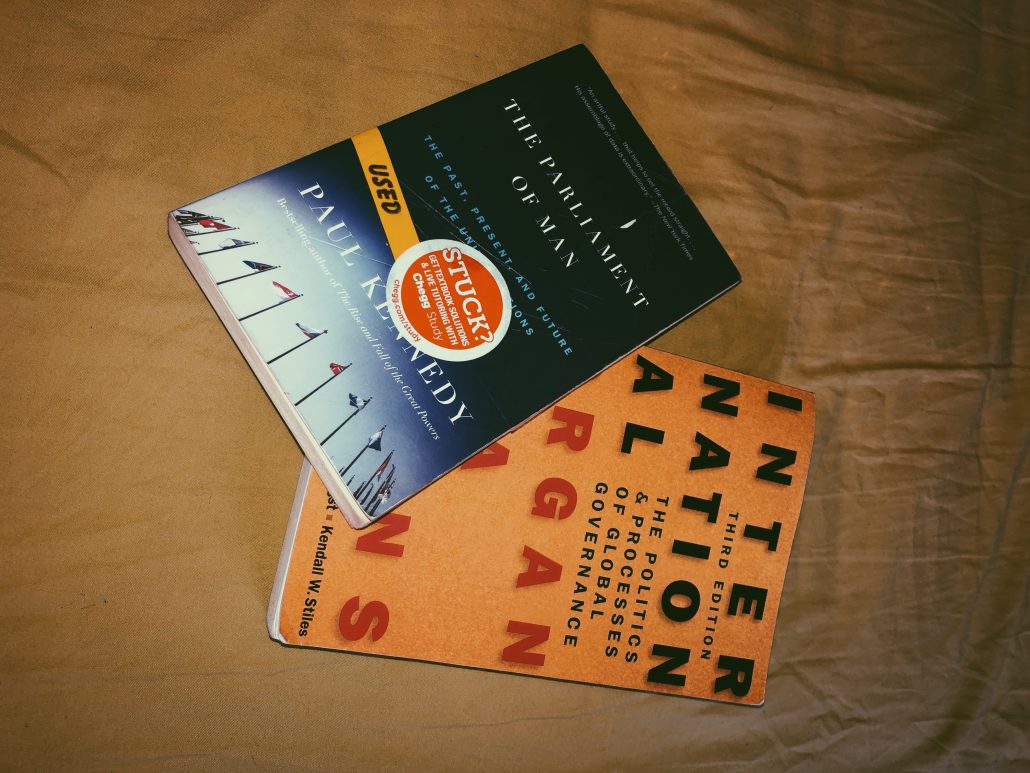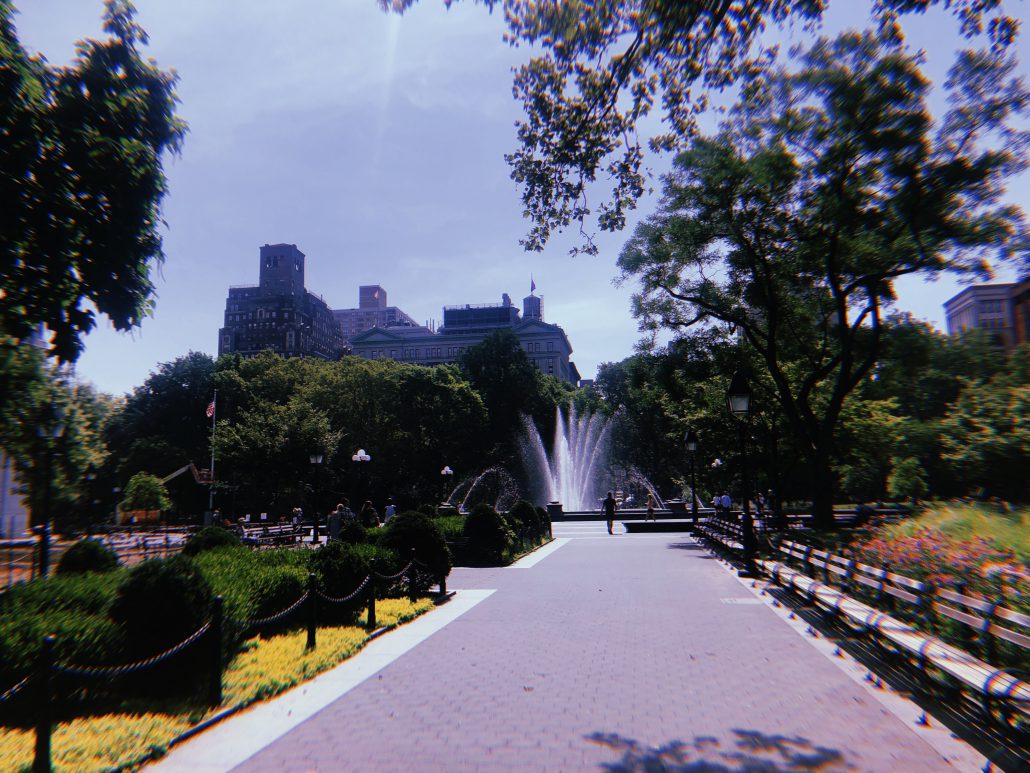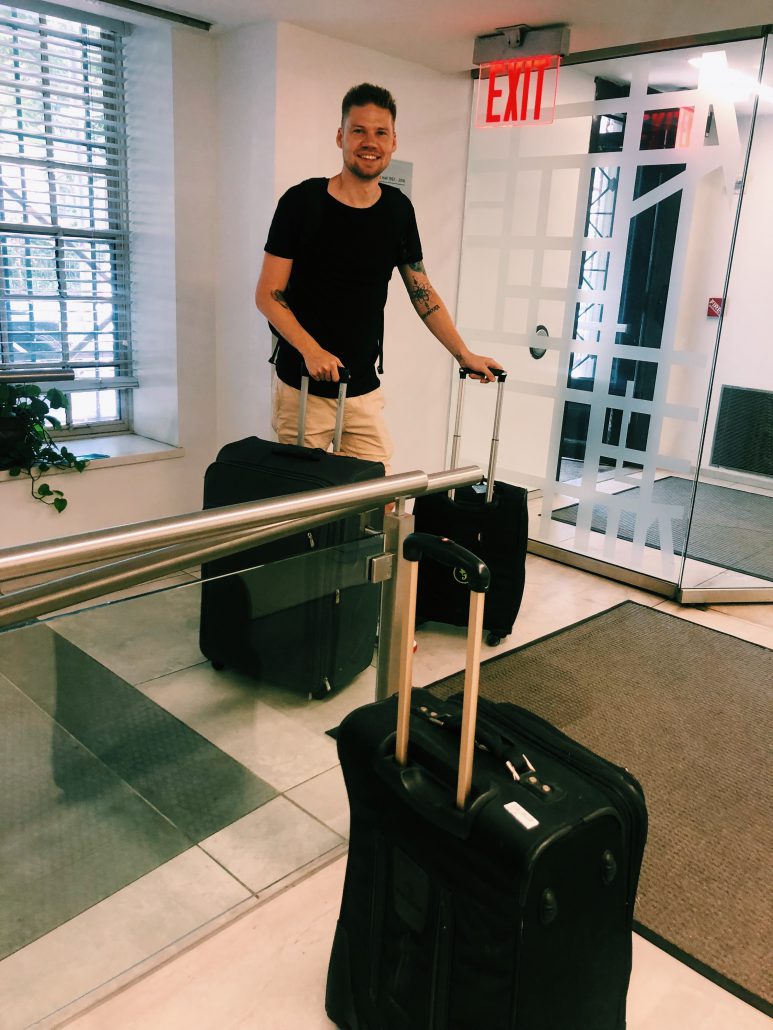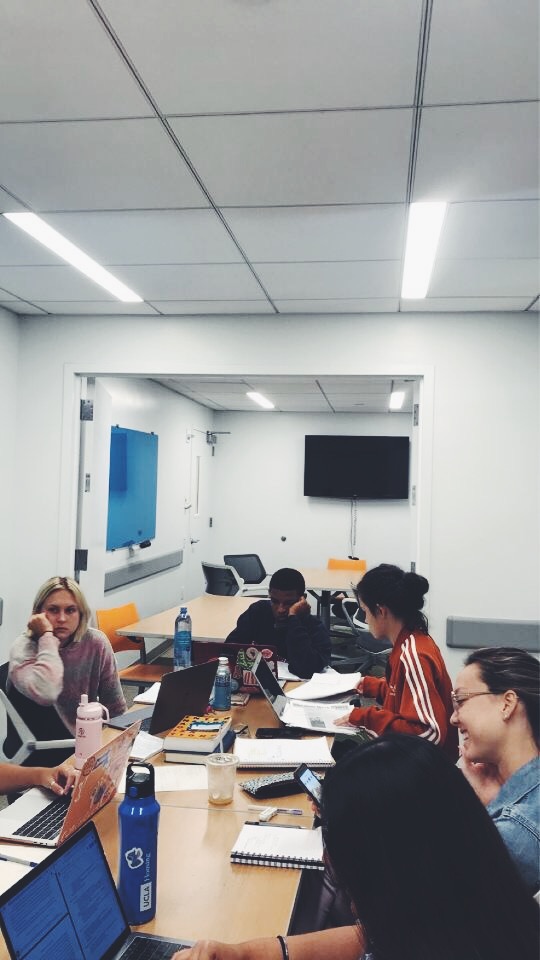By Kyra Baffo
Our last few weeks were focused on preparation for the final exam. None of us were
sure what to expect and the fact that it was worth 10 units did not ease our worries.
Now that I’ve successfully completed the program, I can assure you that you have
nothing to fear. Below I’ll share major takeaways I gathered from the course material
and preparation strategies that worked well for me.

As stressful as it may be to study for the final, try to give yourself time to reflect on
your experience in the program. Do you have new career aspirations or interests you’d
like to explore? Did you make new connections that you didn’t have before? My own
experience in the program helped me realize that I don’t have an interest in pursuing a
career at the UN. I discovered that most U.S.-based opportunities would require me to
live in Washington D.C. or New York City, which I’m not certain I’d like to do. However, I
have renewed respect for the organization and its role in promoting global cooperation,
facilitating international agreements, and driving peacekeeping initiatives. Thanks to
this program, I got to deepen my understanding of the UN and visualize what it would
be like to pursue a career at the organization. Do not be intimidated if you are not
familiar with the UN or how similar international organizations work – after all, that’s
exactly why you might choose this program!

Discovering how organizations like Human Rights Watch operate within the international
affairs ecosystem and influence policy is another significant highlight of this program.
Civil society organizations play a critical role in policy research and advocacy and they
often play a significant role in shaping public discussion and perspectives on important
human rights issues. In addition to learning about how these organizations work, you
will learn about the variety of human-rights-based approaches to international
intervention and how structural reform in the UN could be achieved. These topics each
speak to modern challenges affecting the current state of the global order, and how
institutions are both navigating this and calling for structural reform.

Drawing the connections between these core themes is a major component of the final.
There is plenty to learn in just a few short weeks. You will likely need to read segments
from two different books in addition to journalistic and academic articles each week.
Adequate preparation will require you to review the main arguments and takeaways
outlined by the assigned readings, guest speakers, and weekly excursions. You should
use these experiences to support your analysis when responding to prompts in the
exam. The exam is open book so don’t forget to use that to your advantage – but
prepare for the exam as if it is not. In my experience, I’ve found my mileage varies
when referencing textbooks during open exams. Use it to supplement your responses,
but do not assume it will replace adequate preparation. In short, The tl;dr for exam
preparation is to remember major themes and connect those ideas to make your
arguments. Don’t worry, you’ve got this!

Kyra studied abroad in New York in Summer 2019. https://ieo.ucla.edu/travelstudy/GlobalStudies-NewYork



